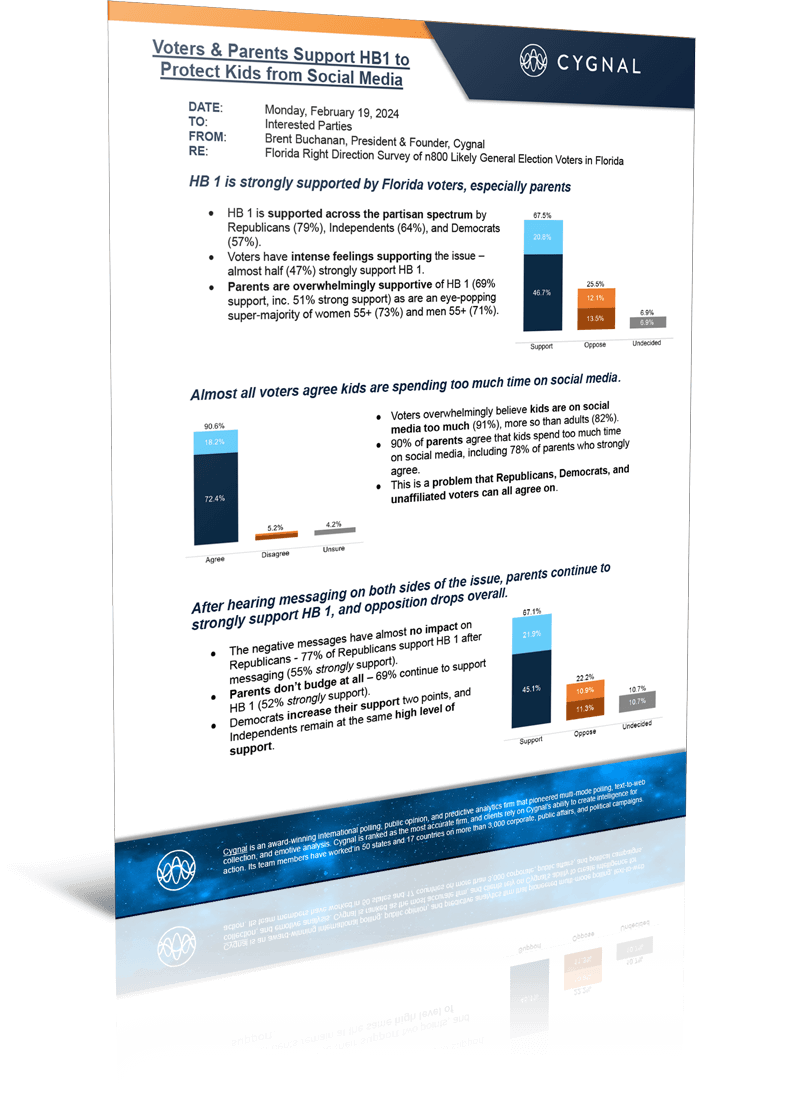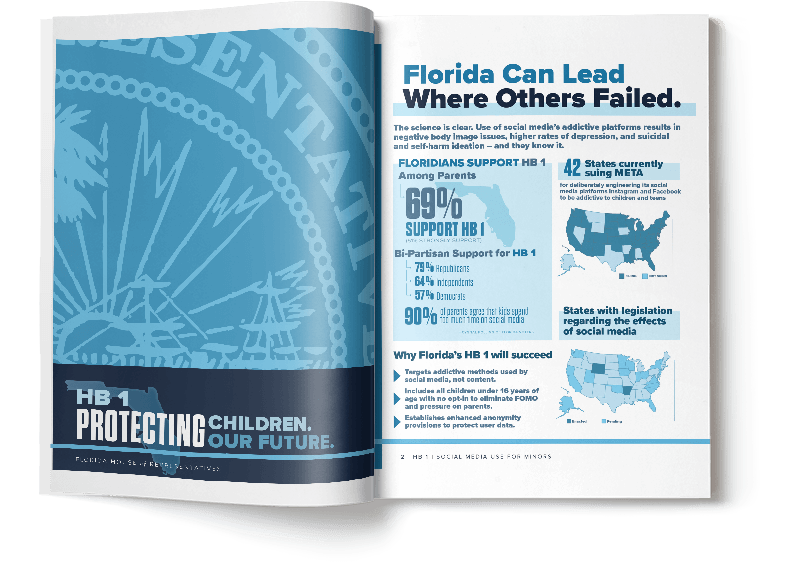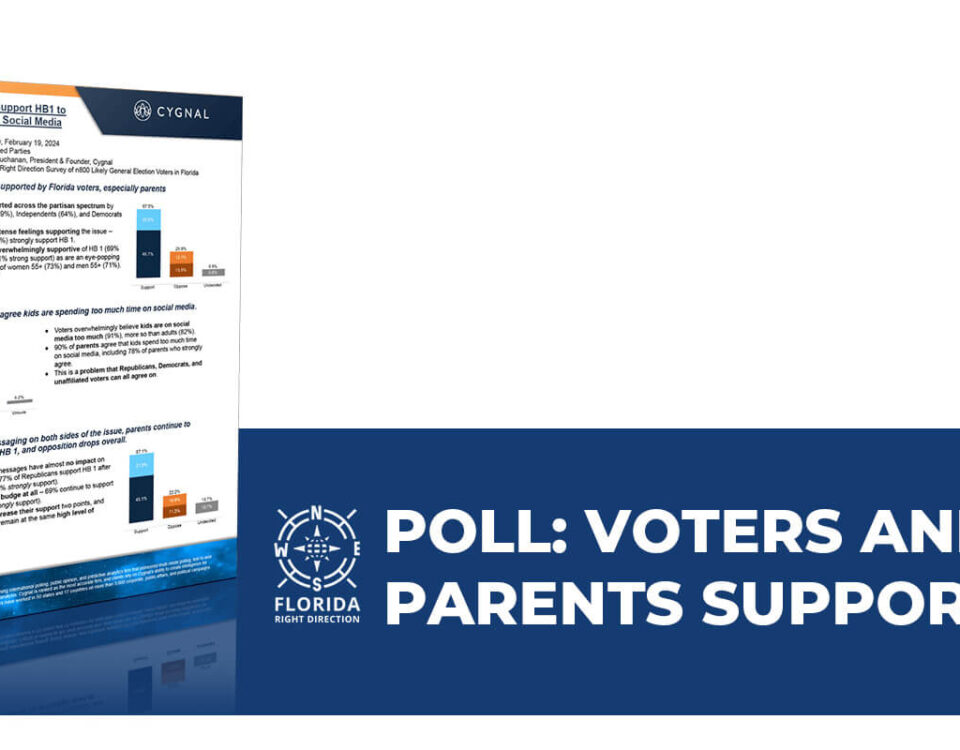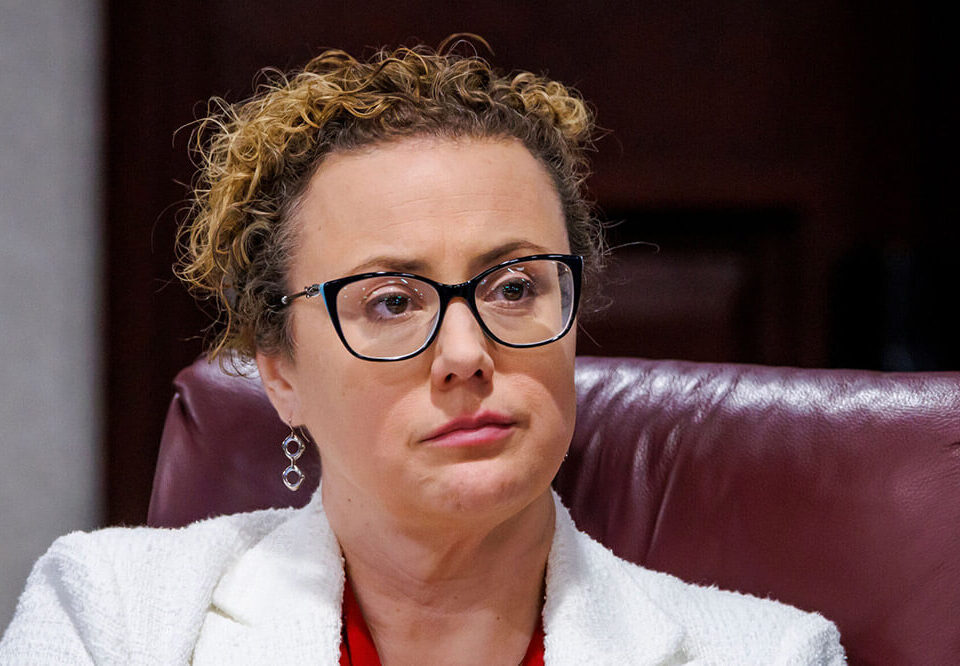Protecting Children's Mental Health
Addressing the Impact of Social Media
Children today face unprecedented threats to their mental health, exacerbated by the pervasive influence of social media. The rise of deceptive and addictive designs within these platforms has led to alarming rates of sadness, poor mental health, and suicidal thoughts among our youth. HB 3 represents a critical step in combating this crisis by implementing measures to safeguard children from the harmful effects of social media.
Booklet: HB 3 Explained
Read the PDF

Poll: Voters and Parents Support HB 3
Read the Poll
HB 3: A Bold Step Forward
Key Provisions and Objectives
HB 3 is a comprehensive legislative initiative designed to protect children from the detrimental impacts of social media addiction. This bill mandates age verification for account creation, prohibits minors from entering into contracts with social media platforms, and enforces strict privacy protections. By requiring platforms to terminate accounts held by minors and promoting transparency in content policies, HB 3 empowers both children and parents to navigate the digital landscape with confidence.
Advancing Children's Rights Online
Enforcing Accountability and Transparency
With the passage of HB 3, Florida is taking decisive action to uphold the rights and well-being of its youngest citizens in the digital age. By allowing legal recourse for violations and promoting accountability among social media platforms, this legislation establishes a framework for protecting children from harmful online content. HB 3 represents a commitment to ensuring that children can explore the digital world safely, with access to resources and support that prioritize their mental health and overall welfare.





